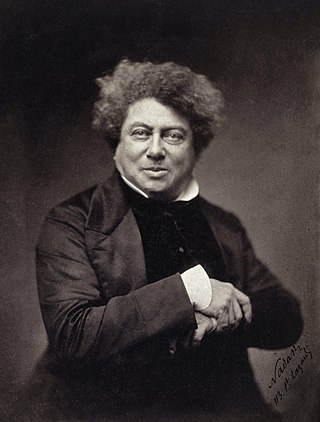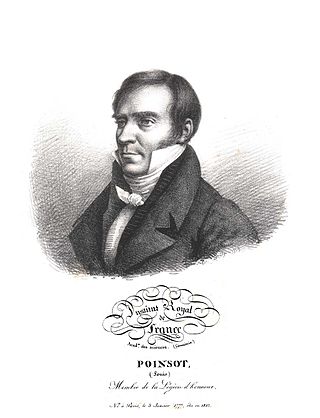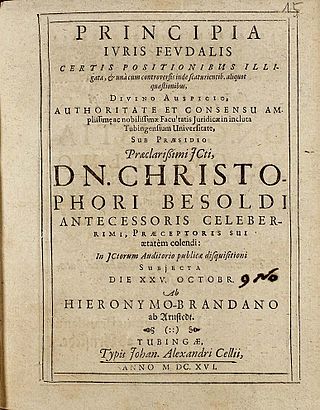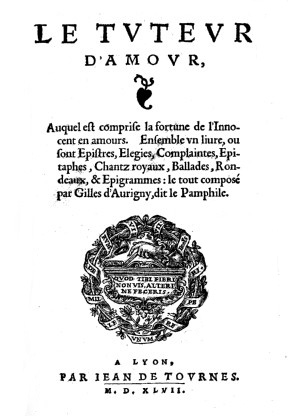Related Research Articles

Johannes Kepler was a German astronomer, mathematician, astrologer, natural philosopher and writer on music. He is a key figure in the 17th-century Scientific Revolution, best known for his laws of planetary motion, and his books Astronomia nova, Harmonice Mundi, and Epitome Astronomiae Copernicanae, influencing among others Isaac Newton, providing one of the foundations for his theory of universal gravitation. The variety and impact of his work made Kepler one of the founders and fathers of modern astronomy, the scientific method, natural and modern science. He has been described as the "father of science fiction" for his novel Somnium.

Jules Gabriel Verne was a French novelist, poet and playwright.

Alexandre Dumas, also known as Alexandre Dumas père, was a French novelist and playwright.
This article contains information about the literary events and publications of 1954.

Gilles Personne de Roberval, French mathematician, was born at Roberval near Beauvais, France. His name was originally Gilles Personne or Gilles Personier, with Roberval the place of his birth.
This article contains information about the literary events and publications of 1871.
This article contains information about the literary events and publications of 1719.

This article contains information about the literary events and publications of 1670.
This article contains information about the literary events and publications of 1638.
This article contains information about the literary events and publications of 1634.
This article contains information about the literary events and publications of 1608.

The 16th century in Canada saw the first contacts, since the Norsemen 500 years earlier, between the indigenous peoples in Canada living near the Atlantic coast and European fishermen, whalers, traders, and explorers.

Louis Poinsot was a French mathematician and physicist. Poinsot was the inventor of geometrical mechanics, showing how a system of forces acting on a rigid body could be resolved into a single force and a couple.

Niccolò Zucchi was an Italian Jesuit, astronomer, and physicist.

Somnium — full title: Somnium, seu opus posthumum De astronomia lunari — is a novel written in Latin in 1608 by Johannes Kepler. It was first published in 1634 by Kepler's son, Ludwig Kepler, several years after the death of his father. In the narrative, an Icelandic boy and his witch mother learn of an island named Levania from a daemon. Somnium presents a detailed imaginative description of how the Earth might look when viewed from the Moon, and is considered the first serious scientific treatise on lunar astronomy. Carl Sagan and Isaac Asimov have referred to it as one of the earliest works of science fiction.
Thomas Hales was a British-born French dramatist and librettist. He was from an Irish expatriate family in Gloucestershire and joined the Royal Navy during the Seven Years' War. He settled in Jamaica for a short time and then in Havana, Cuba, before moving to Europe to travel. He lived in Switzerland and Italy both before arriving in Paris, France, in 1770, where he was bankrupted.

Jean-François de La Rocque de Roberval, also named "l'élu de Poix" or the Sieur de Roberval, was a French officer who was appointed viceroy of Canada by Francis I. He led the first French colonial attempt in the Saint Laurent valley in the first half of the 16th century with the explorer Jacques Cartier.

Christopher Besoldus was a German jurist and publicist whose writing is seen as important for the history of the causes of the Thirty Years' War.

The Man in the Moone is a book by the English divine and Church of England bishop Francis Godwin (1562–1633), describing a "voyage of utopian discovery". Long considered to be one of his early works, it is now generally thought to have been written in the late 1620s. It was first published posthumously in 1638 under the pseudonym of Domingo Gonsales. The work is notable for its role in what was called the "new astronomy", the branch of astronomy influenced especially by Nicolaus Copernicus. Although Copernicus is the only astronomer mentioned by name, the book also draws on the theories of Johannes Kepler and William Gilbert. Godwin's astronomical theories were greatly influenced by Galileo Galilei's Sidereus Nuncius (1610), but unlike Galileo, Godwin proposes that the dark spots on the Moon are seas, one of many parallels with Kepler's Somnium sive opus posthumum de astronomia lunari of 1634.

Gilles d’Aurigny was a French poet and lawyer.
References
- ↑ Christianson, Gale E. (1976). "Kepler's Somnium: Science Fiction and the Renaissance Scientist". Science Fiction Studies. 3 (1): 79–90. ISSN 0091-7729. JSTOR 4239001.
- ↑ Boulger, George Simonds (1892). . Dictionary of National Biography . Vol. 30. pp. 47–48.
- ↑ Auger, Léon (1962). Un savant méconnu, Gilles Personne de Roberval, 1602-1675: son activité intellectuelle dans les domaines mathématique, physique, mécanique et philosophique. Paris: Blanchard.
- ↑ "Bourgeois, Louyse". Encyclopedia of World Biography. 2005. Retrieved 2011-10-02.
- ↑ Lee, Sidney (1894). . Dictionary of National Biography . Vol. 38. pp. 101–103.
- ↑ Hollier, Denis (1998-08-19). A New History of French Literature. Harvard University Press. p. 267. ISBN 978-0-674-25461-9.